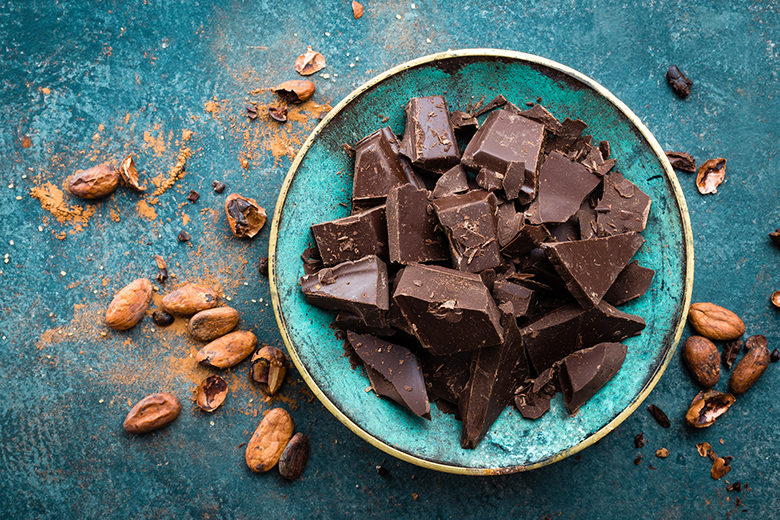
Chocolate has been around a very long time and, let’s face it, it’s delicious. While many people feel bad about indulging in tasty treats, chocolate lately has been elevated as a food that is not only appealing to the palate, but also the body.
But why? There is a lot of media hype about the health benefits of chocolate, and people don’t really want to look into it because finally something we enjoy is “good” for us.
Though the actual truth has not yet been determined, we are getting close. In three different studies, the benefits of chocolate have been explored a bit more closely. The research primarily looks into the benefits of chocolate from the flavonoids it contains. Flavonoids are compounds found in food such as onions, blueberries, blackberries, citrus, and tea that are currently understood to have benefits for the body in very different ways.
Bacteria in the gut, such as beneficial Bifidobacteria (found in yogurt), were seen to release anti-inflammatory compounds from dark chocolate powders into the body. Inflammation is the root cause of many chronic diseases, such as heart disease, high blood pressure, stroke, kidney disease and even Type 2 diabetes.
Another study is looking at cocoa flavonoids in pill form at high doses: 250mg. The hope of this study is to show a reduction in blood pressure and cholesterol levels. But don’t go running for your dark chocolate bar just yet! To achieve this level of beneficial cocoa flavonoids, a person would need to consume one and a half bars of dark chocolate — that amount would contain 300 calories, 22 grams of fat and 24 grams of sugar. At this rate, you would only be increasing your chance for obesity and Type 2 diabetes, as well as your risk of high blood pressure and high cholesterol.
Cocoa may also reduce inflammation and cardiovascular disease (such as heart disease, stroke and high blood pressure) by suppressing cells that promote inflammation. The compounds found in cocoa may also reduce the production of pro-inflammatory proteins, therefore reducing inflammation. In these cases, inflammation is decreased or suppressed, which could promote a healthier cardiovascular system. However, beneficial properties are found mostly in unprocessed pure forms of the cocoa bean – and rarely in chocolate bars. Because of this, availability of these compounds in the body varies from person to person depending on the type and quantity of cocoa being ingested.
But is any of this research definite? No. Does eating chocolate when you feel like it make sense to promote these benefits? Absolutely not. These studies all stress consistent intake. As said before, the levels one needs to receive benefit from the cocoa found in dark chocolate are not worth the increased risk of chronic diseases.
For now, enjoy your chocolate on occasion – whether it be dark, milk or white – but don’t assume you are doing your body good. The jury is still out.







